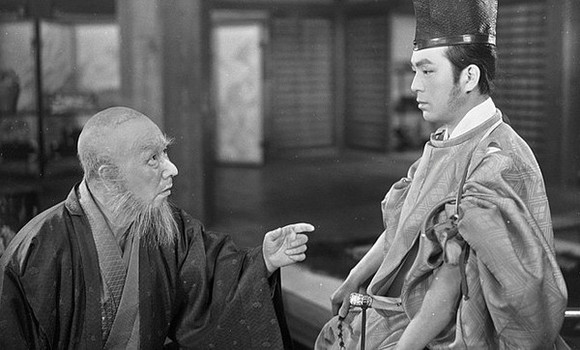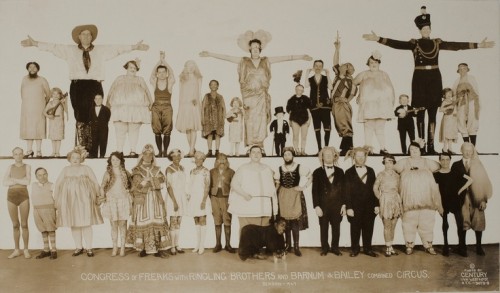
Brion Cemetary, San Vito d’Altivole, Carlo Scarpa architect
Something occurred to me regarding the last posting. I got a few hate mails from people about autism; and this usually took the form of complaints about my insensitivity to their (the autistic email writer’s) hard life, or in general those with autism and their suffering.
So, a few things first — though they lead into the actual topic of this entry: suffering is pretty much what the entire world shares. You cant stand and look around in all directions, no matter where you are, and not see suffering. Secondly, this is the province of *hurt feelings*. Unless I had an out of body experience, I didnt rape anyone, beat up anyone’s children, burn down anyone’s house, drop napalm on any wedding parties, or trigger hellfire missiles at anyone’s village, nor did I cheat anyone, steal anything from anyone, torture anyone’s pet kitten, or even tease anyone’s Cocker Spaniel. Nor was I making fun of anyone. I wrote a fucking blog entry — and discussed the topic of autism and culture.

When I was young my parents, in rapid succession, were told I was a genius (or advanced learner or something….) and a sociopath. I suspect more emphasis on the latter. We are all suffering various conditions and life is hard, and despair lurks behind every door it often seems. Partly this is why humans create. And tell each other stories. And paint and dance. Growing up –especially under advanced capital, or in nations under the boot heel of Imperialist capital, is always a progress through madness and pain. That said, I often wonder, if psychically, the rich don’t really suffer more, or simply live in a state of greater anxiety. The point is, the very act of bringing up one’s “hurt feelings” for public display is just this side of grotesque, and additionally, the demand for apology in this society is pathological —- firstly because its never accepted, and secondly, because it is never, and can never, be sincere.
Now, I am hoping in coming weeks to have a round table here on the topic of Slavoj Zizek. I think its useful because of his pernicious influence, and because his celebrity has granted him special visibility. So, as a sort of proglomenia to the auto-da-fe, I wanted to discuss a couple things on film and theatre, and an introduction to the Zizekian discourse.
I was reading an old thread on a new defunct blog, and the topic was film, and a comment was made that the director of this film (a sort of kitsch crime film and a hit) had tried his best but given the genre and marketing, etc, the film ended up just formulaic studio junk.
Now, here is the thing. Sometimes the neglected dimension in reading a film, is the performative one. Actors, in Hollywood anyway, often act “up” to their material, or “down”. And I suspect the second might be worse (Helen Mirren in what she considers beneath her, and the first is Tom Hanks in his prestige vehicles, or any action star or comedy star doing a *serious* turn, i.e. Steve Martin doing Beckett, or Stallone in non violent drama). There are notable exceptions to this, Jackie Gleason in The Hustler, and Jerry Lewis as himself in King of Comedy. The performances of, say, Ian McKellen in X-Men is itself a sort of violence on the narrative (such as it is). It is an expression of hostility. There is a whole mini-canon of films for which my dislike places me in the minority — John Sayles films, or in other circles often David Lynch and in others still the work of Michael Haneke. In each case, a good part of my reading has to do with the performative.

In U.S. (so called) Indi film (for it is nothing of the kind 90% of the time) the banality and bourgeois sensibility (masked in other categories) is realized in the acting. In Sayles, you get very carefully proscribed “naturalism” — the carefully observed banality of *daily life*. It is meant, consciously in most cases, as a corrective to Hollywood big budget blockbuster. If you screened twenty frames from the opening five minutes of any indi film and twenty frames from any Bruckheimer shlock-fest (especially if the sound were turned off) you would without any difficulty be able to identify each (and this is if we managed to find twenty frames of Bruckheimer without a shooting or car chase). However, in almost anything made now there are these various correctives to something else. Or rather, what are predicated, consciously or not, as correctives. The problem is that the default setting now is really blockbusters, and that trickles down to relatively small films that are just downwardly selective bred blockbusters (the way toy poodles are bred down version of Standard Poodles). This leads back, as all film topics seem to do, to volume. The saturation point was reached twenty years ago. So we are post saturation, now. The cues, visual and textual AND performative, are over-determined. Each shot is a recreation of ten different films from several different decades. How many times do we see a character walk away from an exploding vehicle (house, mountain, etc) without turning back to watch the flames? Each time a dozen other films are being sampled. I recently read a brief posting about Fruitvale Station, the new film based on the shooting of Oscar Grant by Oakland police. A first feature by a USC film school grad, it won Sundance awards and stars relative unknown Michael B. Jordan (relative because he was a featured player in The Wire). So, a dozen reference points are already in play before even seeing the film. I have not seen it, but that the response from “the left” has been overwhelmingly positive is hardly a surprise. At this point, the reading of the film feels pre-determined, if you are a community activist or you’re a Oakland cop, or you’re a Wall Street Journal film critic. Again, there is beneath the engagement with the artwork (in this case film and TV)an appreciation that feels validated by a surface ideological instruction. Oh, this is a topic within my comfort zone, and hence the real target audience is flattered and feels confident to applaud. In reality, my guess is that the Oscar Grant story will be conformist in all areas, only with a “moral” instruction tacked onto it. A radical form — say a Mizoguchi, will remain opaque to this sort of approach of viewing. Such approaches ignore or remain indifferent to films that almost certainly are more radical (and more on that in a second) by virtue of their form, than the domesticated bio pic that narrates an incidence of police brutality.

Accattone, 1961, Dr. Pasolini
The actual narrative of almost any film made today is going to be partially obscured by the performative, and the frame in which that performance takes place. The sampling aspect also overlaps with itself. Each reference can be divided down to a dozen sub categories of reference. I was thinking recently of the way in which history is being rewritten by performance and by the camera. Take HBOs Boardwalk Empire. This series is first of all, an HBO product so it bears the unmistakable imprint of HBO structural keys. Beyond that, it is a “period” series. Beyond that it is a genre series. The casting mines earlier incarnations of this genre, and of HBO product. From the opening credits the audience is keyed into the essentials of how to read it, the map to reading this show is so firmly in place that what ends up foregrounded are the aesthetics of violence more than anything else. I suspect subconsciously the various directors of this show know full well the parameters of what shots can work, and what cannot. Nothing really destablizes the product — or encroaches on the pre-determined narrative. However, even within such shows, exceptions occur and it is worth noting them for these exceptions will quickly be reproduced in diluted form in coming HBO series, as well as just a host of other films.
 Take Michael Haneke’s most recent film, Amour, a winner at Cannes. This is haute naturalism at its most extreme. Now, as a sort of thought experiment, one might compare Haneke’s direction of actors with that of Bresson, or even a contemporary like Bruno Dumont. One reason I consider Dumont a far more significant director has to do with performances. But even with such comparisons, one cannot step outside conventions. In reality Dumont suffers many of the same problems Haneke’s work faces, only with less naturalistic acting. I can think of perhaps four directors whose work withstands such easy recognition, and that would probably be Dreyer, Bresson, Pasolini, Fassbinder, and perhaps Ozu. And maybe Mizogouchi and Tarkovsky. The further back one goes, the easier it is to see a mise en scene free of sampling. But also an acting free of the studied expertise/audition quotient.
Take Michael Haneke’s most recent film, Amour, a winner at Cannes. This is haute naturalism at its most extreme. Now, as a sort of thought experiment, one might compare Haneke’s direction of actors with that of Bresson, or even a contemporary like Bruno Dumont. One reason I consider Dumont a far more significant director has to do with performances. But even with such comparisons, one cannot step outside conventions. In reality Dumont suffers many of the same problems Haneke’s work faces, only with less naturalistic acting. I can think of perhaps four directors whose work withstands such easy recognition, and that would probably be Dreyer, Bresson, Pasolini, Fassbinder, and perhaps Ozu. And maybe Mizogouchi and Tarkovsky. The further back one goes, the easier it is to see a mise en scene free of sampling. But also an acting free of the studied expertise/audition quotient.
In exactly the same way the audience now reads narrative from the pov of producer or executive or marketing director, the actor tailors his or her performance for these audience avatars. There is a lack of mimetic coherence in today’s audience that allows for this trend toward compartmentalizing or doubling. It really is a sort of cultural narrative bi-polar condition.

Sansho the Bailiff, 1954, Dr. Kenji Mizoguchi
Now, when I say “naturalistic” I am to be honest, not sure what I mean exactly. To what degree is performance mediated by text? By camera? This is the difficulty in speaking about film. For film is captured by the camera, and actors act *for* the camera. I wrote last entry about an Artaud-ian influence in theatre, in the sensibility that asked of the actor an abandonment of physical rhetoric. You saw it most directly, perhaps, in Growtowski. If one looked at the work of Athol Fugard, in those original productions with The Serpent Players that included Zakes Mokai, John Kani and Winston Ntshona, you saw one of those alchemical marriages of styles; Brecht, black African comedic acting, and its presentation under an Apartheid government that monitored all public performances. How are these plays to be compared to Fruitvale Station? Why does the political narratives of Fugard’s plays seem genuinely radicalizing in a way that anything filmed and financed in Hollywood wont? But what do I mean by radicalizing? I don’t think art creates revolutions. I don’t think culture does that. I don’t think seeing The Blood Knot even worked that way, but I think it DID, however, by virtue of its poetics (for lack of a better word right now) create an expansivness of emotion, an awakening to the very idea of a cultural event, that studio product is precluded from doing. If the tragic, per Benjamin, was about a ‘giving’, a making available something of the deeper pain we all feel, then regardless of the surface *message* or meaning, it was the more radical vision. Fassbinder and Pasolini were both overtly political, but neither were polemicists. They were poets of film (and Pasolini, of course, was also a poet and writer). What you see in the performances is a kind of humility. There is that abandonment of the virtuoso that is always something of an execution of the material, usually of the text. To watch a Tom Hanks, for example, is to see simply smugness, a self satisfied burger having his portrait painted, or to watch the various slummings of Mirren or McKellen or the like, and you see another version of arrogance on display for the rubes.
Sentimentality is another form of violence. It is the false promise of emotion replaced by the bloodless insulin disruptions of essentialist pandering.

The Island, by Athol Fugard, with John Kani and Winston Ntshona
Now, I am just sort of riffing here, and raising questions. The question of *political* film then is raised when one writes of Fugard’s theatre. There seems little in the way of political writing for film or theatre today, or at least little that escapes the mediation of The Spectacle. One can appreciate aspects of Sayles, for example, at least textually, but the over all effect of those films is hard to read as anything other than banal after school specials. I suppose it is worth pointing out that at least there is an intelligence at work in the choice of subject matter, but one just wishes it were wed to a filmic vision that didn’t undercut that intelligence. And this segues nicely into a brief introduction of the topic of Zizek and his progeny.
For in Zizek, before one even gets into the fascistic racism of his thinking, one encounters the circus virtuoso, the truism that beneath most clowns beats the heart of cruelty.

Here is Zizek, from First as Tragedy, then as Farce
“…[Once we understand that the intellectual aspect of the Haitian revolution was supplied by white Frenchmen, w]e white Leftist men and women are free to leave behind the politically correct process of endless self-torturing guilt. Although Pascal Bruckner’s critique of contemporary Left often approaches the absurd, this does not prevent him from occasionally generating pertinent insights–one cannot but agree with him when he detects in European politically correct self-flagellation an inverted form of clinging to one’s superiority. Whenever the West is attacked, its first reaction is not aggressive defence but self-probing: what did we do to deserve it? We are ultimately to be blamed for the evils of the world; Third World catastrophes and terrorist violence are merely reactions to our crimes. The positive form of the White Man’s Burden (his responsibility for civilizing the colonized barbarians) is thus merely replaced by its negative form (the burden of the white man’s guilt): if we can no longer be the benevolent masters of the Third World, we can at least be the privileged source of evil, patronizingly depriving others of responsibility for their fate (when a Third World country engages in terrible crimes, it is never fully its own responsibility, but always an after-effect of colonization: they are merely imitating what their colonial masters used to do, and so on).”
What is really being said here is what Zizek says over and over again; and that is that all the West’s criticisms of imperial brutality are only really a mechanism to prop up our sense of superiority. This is a cul de sac. Its all about US, in any event. The domination of others by white Europe and North America is part of an intellectual equation, and that equation provides our sense of, now, damaged superiority with narcississtic self pity. The consequence is that to speak of colonial brutality is to just be self involved.
The better to just not speak of it.
There is always hidden in plain sight a version of the toy poodle architecture of white surpremicism. Zizek’s canvas of ‘jokes’ targets self involved feminists, multicultrualists, ideas of tolerance and all those confusing deconstructionists, naive and indecisive, and any social protest movement. These are really the same targets that most conservative social critics like to pillory. Lazy consumerist gays, and always with the idea that somehow there is a balloon of hypocrisy that he is popping. But its a straw balloon (as it were). This is the technique of jailhouse predators, actually. Sidling up next to the fish — here, have a smoke….those fucking guards, right? Yeah, and those fucking other cons. What? By this time, already, one has smiled, laughed, and as a general social contract courtesy, gone along with the rhetoric. But then it darkens. And then comes the reassurance…no, hey, I’m one of them bro. I’m only sayin’, you know, they are murderous scum…why they’re in jail. But hey, we’re in jail, too, right. Har har har.

Paul Bowman, writing of Alan Johnson’s reading of Zizek:
“Žižek vis-à-vis cultural studies is equivalent – perhaps even structurally identical –to the situation Johnson lays out regarding Žižek vis-à-vis political theory. His method is to start from a misreading, to move into a caricature, to construct an all-or-nothing binary and then to slay the chimerical straw bogeyman he has invented.”
Here is Zizek again, from an interview on Al Jazeera:
“”I think today the world is asking for a real alternative. Would you like to live in a world where the only alternative is either anglo-saxon neoliberalism or Chinese-Singaporean capitalism with Asian values? I claim if we do nothing we will gradually approach a kind of a new type of authoritarian society. Here I see the world historical importance of what is happening today in China. Until now there was one good argument for capitalism: sooner or later it brought a demand for democracy … What I’m afraid of is, with this capitalism with Asian values, we get a capitalism much more efficient and dynamic than our western capitalism. But I don’t share the hope of my liberal friends – give them ten years [and there will be] another Tiananmen Square demonstration – no, the marriage between capitalism and democracy is over.”
To which, Hamid Dabashi writes:
“When people from one end of the Arab and Muslim world to another cry “people demand the overthrow of the regime”, they mean more than just their political regime. They also mean the regime of knowledge that does not see from pogroms to the Holocaust as equally embedded in “Western values”, does not see Nazism in Germany, Fascism in Italy and Spain, Totalitarianism in Russia and the rest of Eastern Europe (Zizek’s own backyard), horrid racism across the European history, and all other sorts of diseases spreading from one end of Europe to another as coterminous with capitalism while married to the West – and cherry picks democracy as their only offspring, and when aterritorial capitalism wreaks havoc like a bubonic plague around the globe he looks for an flu strain he calls “Asian values”.
*Asian values*? This is what is so startling, that Zizek repeatedly uses this language, utters these openly racist and Orientalist terms and ideas, while still being embraced by the nominal left. I suspect that part of this is an only semi-conscious racism on the part of White college educated Westerners. Zizek is saying, social movements are bullshit, and wimpy. Asian values are unwholesome, and undemocratic. A kind of weird primal male volunteerism is what is called for. This is the message of his film criticsm, after all.
From the M-L-M Mayhem blog (Marxist Leninist Maoist)on Zizek’s review of Zach Snyder’s 300
“For those unfamiliar with the film, 300 is a movie about how a massively outnumbered Sparta defeated the Persian army but at great sacrifice. Directed by Zack Snyder (recently responsible for defiling Watchmen and directing the sexist action film Sucker-Punch), the film is based on Frank Miller’s comic of the same name––in fact, so closely based that all the characters strongly resemble the drawings and the movie is shot almost panel-for-panel. In this film Persia is presented as the barbarous Orient whereas the Spartans are presented as the civilized Occident. The former are even dehumanized in their depictions, some of them resembling monstrous savages from the opium dreams of the most racist colonizer. Very European/white looking Greeks are the heroes against very dark-skinned (and often savage-looking) Persians. At one point, the white Spartan king kicks a black Persian messenger down a well yelling, to much applause in the theatres, the movie’s best known line (and now internet meme): “This. Is. Sparta!” And this is also a film that appeared at the height of Islamophobia, a film that seems designed to conflate Greece with America and the Persians with Muslim terrorists.
According to Zizek, however, 300 is not a reproduction of a racist imperialist narrative where the centres of capitalism like to see themselves as embattled victims facing an onslaught of savagery. Ignoring the logic of the film, and how this logic fits into dominant ideology, Zizek decides to remind us that in actual history Greece was a tiny nation facing the onslaught of a more economically developed empire––therefore, he reasons, we should be able to see the Sparta as somewhat akin to the Nicaraguan Sandinistas and the Persians akin to Reagan’s America. And the very artificiality of the film (everything is shot on green-screened background and heavily digitized) should tell us that we are watching a film about spectacle itself! Hence 300 is not actually dehumanizing the Orient in its depiction of non-white savagery but is making an extremely subtle and sophisticated critique of dehumanization itself.
…300 is a piece of reactionary film-making for three reasons. First of all, the author of the graphic novel source material, Frank Miller, has openly bragged that his comic is meant to be a metaphor for the war on terror and “Western civilization” standing courageously against tides of “Eastern barbarism.” Miller is a right-wing libertarian racist (who currently really wants to write a “Batman versus Al Queda” graphic novel) who intentionally drew the Persians as dark and grossly monstrous, and the Spartans as white and altogether human, because he actually believes the myth imperialists ideologues propagate that the “western world” is engaged in a clash of civilizations with those who hate America because they hate freedom. Secondly, in order for 300 to be a critical film, Snyder would have to shoot the bloody thing in a way to intentionally disrupt the narrative: and yet, judged by his interviews, he was interested in doing an utterly faithful adaptation, transposing the comic identically panel-for-panel unto the screen. Nor is Snyder someone capable of doing a critical piece of political film-making: his adaptation of Watchmen removed the majority of the source material’s critical content; his Sucker-Punch was predictably sexist. Third and finally, the vast majority of viewers interpreted the film 300 in the way that Miller intended the comic book to be interpreted: as propaganda about the War on Terror––audience members at some theatres even cheered the ending of the film by chanting “USA! USA!”
So if the 300 was both produced and consumed as racist-imperialist propaganda, any historical materialist worth hir credentials as an historical materialist would have to accept that, by this very materialist fact (production/consumption), the film is racist-imperialist propaganda. Otherwise, by the very same logic, we could argue that Triumph of the Will or Birth of the Nation are secretly progressive pieces of film-making: Reifenstahl is really satirizing the Nazi Party, D.W. Griffith is interrogating the dehumanization of African Americans! Only the most banal apologists for fascism and racism pretend that these films were not works of reactionary propaganda: we understand the social-historical context––a context of production and consumption––in which these films were made; we would look like fools to pretend that these films were not racist. And we can speak of a more sophisticated understanding of the “death of the author” thesis by arguing that even if Reifenstahl or Griffith had other intentions (which is doubtful), then it didn’t matter because the films were produced within a context that made them reactionary propaganda.”
There is a consistency to Zizek in all this. His mis-reads Lacan, and sticks him atop a jerry-rigged intellectual edifice with Hegel and Marx …both also mis-read, and then simply makes clear misogynist and racist statements, holds reactionary and usually authoritarian political readings, but still his blurbs can be read on the back of many books written by cultural study professors he is in the habit of denouncing. These denouncements usually, if not always, take the form of prima facie male dominance, of male courage and power, and a stigmatizing of weak *female* and/or wily Asian weaknesses and flaws.

“Any man in Congo would sell his mother into slavery for a chance to move to the West Bank”
Zizek
“Should Europe then accept the paradox that its democratic openness is based on exclusion: there is “no freedom for the enemies of freedom,” as Robespierre put it long ago? In principle, this is, of course, true, but it is here that one has to be very specific. In a way, Breivik was right in his choice of target: he didn’t attack the foreigners but those within his own community who were too tolerant towards the intruding foreigners. The problem are not foreigners, it is our own (European) identity.”
Zizek
When interviewed on Croation radio, you hear the same slightly deflected sentiments. Zizek really never answers questions directly, and provides a certain cover for himself by issuing certain statements that for a moment seem progressive in some way, but always there is a qualification, and that qualification is always racist and totalitarian. That the problem is the masses. That strong central control is needed. As he says in the video below, without inequality, no work gets done (around the four minute mark).
Besides the basic incoherence what one primarily takes away from such exchanges is that globalization is good, if in the hands of a strong central power — and that for Zizek, that power cannot ever be in the hands of the Untermensch. This is a highly reactionary almost purely fascist thinker, and how this ‘act’ became so appealing to the half educated westerner is worthy of serious discussion, I think.
As a sort of addendum, I want to add that in addition to Zizek’s general degrading of public discourse, he has single handedly destroyed Lacan vis a vis film theory. (and I appreciate Molly Klein’s work on the Zizek files).

Patrice Lumumba, 1960, first Prime Minister of the Congo
As a footnote to this. I stumbled upon the work of Venetian architect Carlo Scarpa this week. I shockingly didn’t know Scarpa..though I have a vague memory of hearing the name. It is always a rare joy to discover someone new, and the older one gets, the rarer that treat. But I mention this because in one way Scarpa’s work bridges many movements in the 20th century, and his purity, if that’s the word, and his integrity, is evident in even a cursory look at his commissions. He worked very closely with local craftsmen throughout his career. He remained relatively local, and drew upon local crafts traditions (he began as an apprentice glass blower). He drew inspiration as well from modernist art, from Rothko in particular, for color and the sense of emotion he felt connected to shape as well as from Japanese design. There is an unmistakable seriousness in Scarpa. There is nothing trivial and nothing glib. It is no accident that his final masterpiece was a cemetery garden and arcosolium for Giuseppe and Onorina Brion. How is the work of the architect read? It is interesting because there is always a narrative, and in Scarpa’s major projects (the Olivetti showroom, the Castelvecchio Museum in Verona, and the Brion cemetery), the sensibility is tragic. It is not the tragedy of Beckett or even of Shakespeare, but rather the tragedy of Sophocles and of Verdi and Puccini. And probably even of Berg. Scarpa is somber but never grim, never not meditative, and somehow always expansive. Scarpa’s leftist political beliefs were genuinely expressed in his collaboration with crafts people, and with the mingling of elite materials such as travertine and marble with baser utilitarian materials such as cement. It was an architecture of respect and balance. He is the personification of rigour in that nothing kitsch or tawdry is ever present. The grammar of Scarpa is both Latinate and proletarian.

Brion Cemetary, San Vito d’Altivole, architect, Carlo Scarpa

I have a lot to say but right away this:
This is the technique of jailhouse predators, actually. Sidling up next to the fish — here, have a smoke….those fucking guards, right? Yeah, and those fucking other cons. What? By this time, already, one has smiled, laughed, and as a general social contract courtesy, gone along with the rhetoric. But then it darkens.
exactly, exactly. And it started off thazt he had to actually take up straight left positions to start off befire he spring the right wing insanity on you, but now its more and more blatantly just this con “i hate BP they are disgusting” – wait for cheers – “but isn’t Obama persecuting them? Isn’t it too personalizing to make them pay? Don’t we know ity could have happened to any company…the problem is the system!” “Of course I hare these fascists they are disgusting” wait for woof woof woof ! ” but who are we to criticize? Aren’t the leeberals making the common good people live with gypsies? Isn’t Le Pen the one who addresses the real concerns…”
and now he will even start of criticizing this manoeuvre first then perfomring it. This is somethign he does often – he disavows “I’m not saying Fascists are right” and then restates starking “But aren’t they right?” “Of course I think Ayn Rand was wrong, but really wasn”‘t she right?” It’ is as sophisticated as “heads I win tails you lose” and people pretend to be fooled by it because theyt are closested right wingers and racists who love to swagger about nbaked as he does with this little protection of the emperor’s invisible clothes
he used to work harder to win the marks over…this is from my old blog forgive me:
MONDAY, MARCH 07, 2005
Someone loves scary suprises
Zizek
What a good time you’re having with Zizek. There’s one little hint that something is not right here: “They were first told that they were entering the promised land of political freedom; then, soon afterwards, they were informed that this freedom involved wild privatization, the dismantling of the system of social security, etc. etc. — they still have the freedom to choose, so if they want, they can step out; but, no, our heroic Eastern Europeans didn’t want to disappoint their Western mentors, they stoically persisted in the choice they never made, convincing themselves that they should behave as mature subjects who are aware that freedom has its price …” Is Zizek forgetting a little war or two? Social unrest? Repression? Swindles? But okay, the whiff of sulfur was probably just from lighting his pipe. Everything else he’s saying is so right, so comforting, so rational.
You extend your hand so trustingly to him, certain of an enduring friendship…and it’s a claw! Handcuffs! Dungeon! Anne Coulter!
“The obvious reproach that imposes itself here is, of course: is the basic characteristic of today’s “postmodern” subject not the exact opposite of the free subject who experienced himself as ultimately responsible for his fate, namely the subject who grounds the authority of his speech on his status of a victim of circumstances beyond his control? Every contact with another human being is experienced as a potential threat — if the other smokes, if he casts a covetous glance at me, he already hurts me; this logic of victimization is today universalized, reaching well beyond the standard cases of sexual or racist harassment — recall the growing financial industry of paying damage claims, from the tobacco industry deal in the USA and the financial claims of the Holocaust victims and forced laborers in Nazi Germany, and the idea that the USA should pay the African-Americans hundreds of billions of dollars for all they were deprived of due to their past slavery … This notion of the subject as an irresponsible victim involves the extreme Narcissistic perspective from which every encounter with the Other appears as a potential threat to the subject’s precarious imaginary balance; as such, it is not the opposite, but, rather, the inherent supplement of the liberal free subject: in today’s predominant form of individuality, the self-centered assertion of the psychological subject paradoxically overlaps with the perception of oneself as a victim of circumstances.”
This may be the inevitable effect of clinging to an (Hegelian) idealism available in psychoanalysis. The slave is *really* the master anyway – this is obvious in any bourgeois novel you’d care to read – so why shouldn’t the slaves pay the reparations? An observation rightly made about the Wall Street Broker’s sense that someone asleep on the subway in an intolerable offense to his sensibilities and is committing a crime against his quality of life is easily slipped, through the convenient channel “The Subject” into a wholly different situation, producing a falsehood and a gross misrepresentation of the political struggle for slavery reparations. Grouping Lavalas and the Bush clique together isn’t easy, but one sure way is to simply expell them and history and offer a pantomime of “The Subject” and “The Other” to represent them both simultaneously. Then indeed there is no meaningful difference between slavery reparations sought by Haiti from France or by African Americans from US corporations and the war reparations for lost profits extorted by American Express from Iraq.
posted by Alphonse van Worden at 11:21 PM 0 COMMENTS
well, we could go on and on with quotes and examples. Here is one…
“See, for example, the attitude of some Western Leftist academics toward the disintegration of Yugoslavia: since the fact that the people of ex-Yugoslavia rejected (“betrayed”) Socialism disturbed the belief of these academics (i.e., prevented them from persisting in their belief in “authentic” self-management socialism through the Other that realizes it), everyone who does not share their Yugo-nostalgic attitude was dismissed as a proto-Fascist nationalist.” From The Interpassive Subject.
He has always been rather obviously pro NATO vis a vis the Balkans. His attacks on Handke relate to this. WHat is clear in that radio interview, clearer than I have seen it before, is his totalitarian instincts. I mean he says it, openly. Central power, and the *little nations* benefit……right, they benefit as client states, under the umbrella of white european/U.S. power, and he says it with Egypt….was Mubarek this bad? He is anti democratic, totalitarian, and driving most of this is a very repulsive racism. Just that quote on Breivik is so amazingly insensitive, so vile and hateful…….if one really considers the murder of 70 some children…children!….by this fascist nazi loon….and then it becomes a “clever” sort of rhetorical gambit that isnt a gambit or clever at all….it is just fascist.
John –
First, thanks for your blog. Your essays are generative and challenging; I’ve learned and rethought many things here. Small point on “Asian values,” since I remember my frustration at Dabashi’s misfire and think citing his post dilutes the acuteness of your critique.
Z is not talking about some personal construct that “he calls ‘Asian values,'” he is talking about what Lee Kuan Yew called “Asian values” when this was so many politicians’ and editors’ watchword in the region in the late 1990s (http://en.wikipedia.org/wiki/Asian_values). Obviously nothing if not repetitive, Z makes clear in more expansive earlier talks that he means to evoke just this context. In the AJ interview it is shorthand for “the corporate state as envisioned and defended by, e.g., Lee Kuan Yew” as the second term in a false dichotomy with Clintonism; Dabashi may have had the right target but, in forgetting the phrase’s general currency, he seized the wrong occasion.
One thing which I think is worth mentioning is film simply doesn’t have the respect as an art form the more “traditional” mediums do. There are many people, even reasonably cultivated people, who are unwilling to engage with cinema in the way they’d engage with painting, literature, or music. And I think such a circumstance is bound to have an effect on the predicament film finds itself in, and much of that probably has to do with the fact it’s a new art form. With the exception of perhaps Bergman and Fellini, who are hardly the two greatest filmmakers of all time, there are no ‘serious’ filmmakers with the sort of “bourgeois” name recognition and respect of say Samuel Beckett, DeKooning, Nabokov, Faulkner, or even John Coltrane, Henry Miller, and Thomas Pynchon. Name-dropping Mizoguchi or Fassbinder doesn’t get you brownie points at Upper West Side cocktail parties the way citing Beckett or Faulkner does.
Now of course you could also cite Chaplin and Hitchcock as examples of great filmmakers known by the general public, but they’re not known by your average Ivy League-educated lawyer, GE executive, or NY Times writer for the same reason Beckett would be known by such people. They were ‘pop’ before being embraced as practitioners of high art by Bazin and co. Beckett and Faulkner were never ‘pop’ to begin with. So my comment is with respect to filmmakers who were never pop to begin with, as well.
never pop to begin with either*
@thurnandtaxes…..
thanks for that. I guess i need to read the buisness page more because I dont remember that at all. Reading up on it now though, it almost makes it more interesting…..though not quite my point at all, but still interesting.
and remy…
yeah, i mean this makes me think it would be useful to really sort of graph out the way in which 50s criticism….from Cashiers to enlgish lit critics….in both the US and England, gained visibility, while others dropped off the radar. And then on into the sixties and so forth. I think that might be quite illuminating. And mostly I sort of agree with what you say…..up to a point, and that point is that today, and where this happened Im not sure…..film has eclipsed all other mediums and today I suspect you will get more response from a mention of Kubrick say, then you will mentioning Kafka. I guess it depends on the circles on is in, and thats worth looking at too.
“…Lee Kuan Yew called “Asian values” when this was so many politicians’ and editors’ watchword in the region in the late 1990s (http://en.wikipedia.org/wiki/Asian_values). Obviously nothing if not repetitive, Z makes clear in more expansive earlier talks that he means to evoke just this context.”
No this is doubletalk and really disingenuous. Of course he uses LKY as the excuse to use this term, but he is explicit that for him it means absence of democracy and elsewhere he describes it as “the asian knout”. He is resorting to evoking an established white supremacist scheme and imagery of “Oriental Despotism”. It’s unconcealed.
Elsewhere Zizek has insisted that when he saus “Asian values” it has nothing to do with Asia or Asians, but is a word he has chosen to signify authoritarianism and contempt for human life.
Sorry I mean a phrase he has chosen.
The difference of course is plain – imagine what you hear if Rabbi Michael Lerner would say “Jewish Values” as opposed to what you would understand when Hitler or Zizek said it, or if Tariq Ramadan speaks of “Muslims Values” in contrast to what this would mean if The Koch Brothers ot Bibi Netanyahu said it, or what Cedric Robinbson might mean by “Black Values” as opposed to David Starkey.
per Asian values…
I think when I said it was even more interesting after reading the wikipedia entry, i meant that it becomes a strange evoking of something else… a blurred doubling. I think he does mean malaysia and singapore, and I sort of recall much talk around singapore in particular…..this was back during the caning incident…..early nineties i think. So i dont know to what degree its being directly imparted: but The response from an arab critic was certainly reading it the way I did. Now…ok…maybe he (debashi) missed it, honestly I dont know. But at the least, (as i say, more interesting) it is creating a doubled meaning. Both are true….both are evoked…even if intended or not. And Zizek manages to find these terms….so…..
Dabashi was absolutely right though not harsh enough.
What LKY meant with regard to economic policy was “not neoliberalism”, to associate certain aspects of neoliberalism (the weakening and bankrupting of the state, for example) as “Western” and individualist. Of course LKY was performing propaganda but not at all the same propaganda as Zizek’s white supremacist scheme he deploys this term to perform.
In fact Zizek favours an authoritarian state; his whole purpose in propaghandising about this supposedly distinct Asian capitalism is to emphasise over and over its dynamism and energy and profits. On democracy now he said “if we do nothing we will end with authoritanism” and then he recommended, precisely, doing nothing – with his Bartleby routine and his don’t do something, think! routine with its fable of Lenin retreating to read Hegel.
http://qlipoth.blogspot.gr/2008/05/comedy-central-marxist-colbert-report.html
“If we don’t act, I can see quite well the possibility—some Western version of the Chinese option, what they poetically call Asian values capitalism, which is really capitalism with authoritarian structure. Here, I see a world historical meaning of what goes on in China. …. I think they are a model where capitalism and democracy are dissociated, and capitalism, if anything, works even better. This is the sign of the future…. What we need is to withdraw—don’t be afraid to withdraw and think. You know, Marx thesis eleven: philosophers have only interpreted the world; the time is, we have now to change it. Maybe, as good Marxists, we should turn it around. Maybe we are trying to change it too much. It’s time to redraw and to interpret it again, because do we really know what is going on today?
…. Don’t be—don’t feel guilty for withdrawing from immediate engagement and for trying to understand what’s going on.”
One more time now, the highlights:
“if you don’t have a basic patriotic identification—not nationalism, but in the sense of “we are all members of the same nation and so on”—then democracy doesn’t function. You cannot have a living democracy in this pure multiculturalist liberal dream… it cannot last….The struggle is beginning today for what will replace it. There, we will have to make tough decisions….If we don’t act, I can see quite well the possibility—some Western version of the Chinese option, what they poetically call Asian values capitalism, which is really capitalism with authoritarian structure…..You know, Marx thesis eleven: philosophers have only interpreted the world; the time is, we have now to change it. Maybe, as good Marxists, we should turn it around. Maybe we are trying to change it too much….Remember that when somebody is telling you…“ Let’s do something,” this is the threat. This is the threat….What we need is to withdraw—don’t be afraid to withdraw….Don’t be—don’t feel guilty for withdrawing from immediate engagement.”
It’s very clear if you can ignore all the spitting and nosepicking: Authoritarianism is good for capitalism. Democracy is too weak to protect the volkish nation from foreign intruders. If we don’t act we will have authoritanism. So we should not act.
As for anti-intellectualism in America and how that relates to the relative popularity of Kubrick with respect to Kafka, I don’t think reactionaries like Gore Vidal and Alan Bloom did intellectualism any favors within the English-speaking world. I know many literary types would slaughter for saying this, but I despise everything Vidal stood for. It’s this whole “reading for reading’s sake” thing. That’s the difference between Anglo-Saxon intellectuals and Continental intellectuals from say France. The French intelligentsia values art while the English intelligentsia values letters for their own sake. I know that might be reductive.
@molly:
Well, look, I posted asian values because I basically agree with your and debashi’s critique. I only must admit I hadnt clocked exactly that this was bracketed by a the singapore debate. And as I say, its both anyway. And yes, look, if you listen to the Croatian radio show, he makes as clear a case for a centralized authoritarian power as its possible to make. Its why i selected that. He says little nations are helped (by being client states) by a central globalized neo imperialist power, and bigger industrial democracies…France, Germany, etc, will suffer….but thats for him inevitable and not bad (in fact, he implies good). AND….and, he says, without inequality no work gets done. I mean he says exactly that (and in other places he has said it less directly, but still said it). Now what pirouettes of logic will his defenders come up with to explain that away? If Richard Perle said that, leftists and liberals would denounce him. He then says, we need a centralized power….democracy wont work…..doesnt work. He is blatantly anti democratic. And there is no possible explaining that away. SO what does one end up with…..? An authoritarian, totalitarian racist and misogynist who believes that client states should be run as workers camps, essentially, development zones, for global capital and that multiculturalism is weak and unrealistic, that Breivik was right basically, and that Hitler didnt go far enough….that the left needs its own Thatcher etc etc. HOW, HOW HOW HOW can people think and justify to themselves this ranting fascist? And….additionally, he badly mis reads Lacan, Marx, Mao, Gramsci, ….and the French Revolution, not to mention is factually wrong repeatedly on historical matters……but…..that doesnt stop his bus and truck tour from selling out.
@remy:
Vidal was a lousy novelist. As years passed, his became one of those voices from the elite class calling for a sort of socialism. He wasnt wrong, usually anyway. His writing is shockingly bad, however……and how one explains that is a whole other discussion. But i dont think he was a reactionary. And he cant be lumped in the same basket with an alan bloom (or harold bloom for that matter). One of the interesting cultural evolutions has been the NYRBs. From sort of bourgeois scholarship….often good, often really informative and enjoyable, it slowly declined into this self parody with the likes of Ian Baruma —- its almost tragic…I used to really have fun reading the NYRB. I remember taking the train from Krakow to Lodz (5 hours) in winter…at 5 am to get to my lecture at 11 am and the NYRB was the best train read in the world. Now, its unreadable. Now, this is the voice of academic bankruptcy. And where once you got IF Stone, now you get an essay by David Bromwich, or Joshua hammer or baruma or all the rest of the clintonian liberal WHITE class, and it overlaps with the New York Times and New Yorker. This is the face of the public intellectual, actually (a topic i should write about, but russell jacoby had a terrific book., The Last Intellectuals, about just this. Jacoby by the way is exactly who SHOULD be writing in the NYRBs….not this court stenographers.
so Vidal is actually a quite good source of certain historical records….and I think his gayness allowed him to mediate his wealth, and id rather have vidal as public intellectual than almost anything I can think of on MSNBC or CNN or huffington post or any other mainstream entity.
I guess there was always something I found a but pompous and self-righteous, as if he had to place himself above the writers commenting on.
Also, John, what’s your general take on the festival film scene and the recent film work that’s come from countries like Taiwan, Korea, Iran, Argentina, Hungary and other places that cinephiles generally like to refer to as “neglected” corners of the globe? Do you not feel them to be at all an antidote to the issues that plague Hollywood and indie filmmaking?
Remy: yeah, i think there is quite a lot of great stuff coming from those countries…..places not usually associated with film culture. There is a weird scene in Nigeria for example, and Beller has written about the philippines. Much of it never gets to any festivals, though. Some of it does, and in general I support festival culture, even if most of it is pretty bad and curated by the wrong people. Still…. interesting work can be found. I think Russia as well, is making a lot of really unusual films, and I think other places….and nigeria, again, is one, the TV stuff designed for local audiences is often amazing.